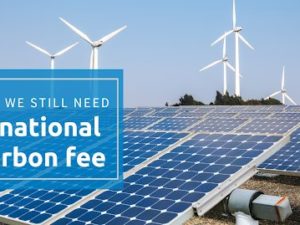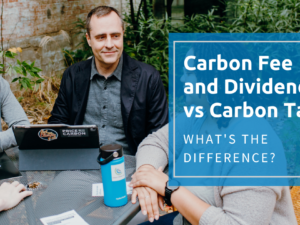By Steve Valk
Washington Post writer Chris Mooney has an excellent post today about the way forward to solving the climate crisis, and not just because it touts CCL’s proposal for a revenue-neutral carbon fee.
Mooney gets to the crux of the problem: Why climate change became a bitterly divisive partisan issue and how we can bridge that divide.
“Conservatives embrace a value system that puts a premium on freedom and liberty and that is often termed “individualism.” The idea here is that it is fair and right for individuals to succeed or fail in the world based upon their own merits, but it’s wrong is for government to step in and tip the scales by favoring one individual over another. Thus, individualists, in surveys, are much more likely to agree with statements like “the government interferes far too much in our everyday lives” and “society works best when it lets individuals take responsibility for their own lives without telling them what to do.
“Liberals (and environmentalists) are very different. They put a much higher emotional premium on protecting the weak and innocent (including not only humans but also plants and animals) from harm, and upon a communitarian approach in which individual freedoms are not paramount and must often be curtailed in the interest of the broader group and everyone’s safety.”
The big battle shaping up that has both sides digging in their heels is the forthcoming EPA regulations to curtail carbon emissions from power plants. Mooney says there is hope, however, that Republicans can come around on a solution that doesn’t dictate behavior or increase the size of government – a revenue-neutral carbon tax:
“If the tax is ‘revenue neutral’ — meaning that the government does not keep any of the revenue, but rather distributes it to citizens — then it can’t be attacked as another big government ‘tax and spend’ initiative. And thus, this approach has the best chance of softening the deep emotional reaction that individualists feel when they think about the climate change issue. As for returning the revenues? The carbon tax could lead to reductions in corporate or personal income taxes. Or, it could be distributed to citizens in the form of a dividend, which is what the Citizen’s Climate Lobby supports. Both would be, er, rather popular — obvious political winners.”
I highly recommend reading the full post from Mooney. A very insightful – and hopeful – examination of how we can break the congressional impasse on climate change.






